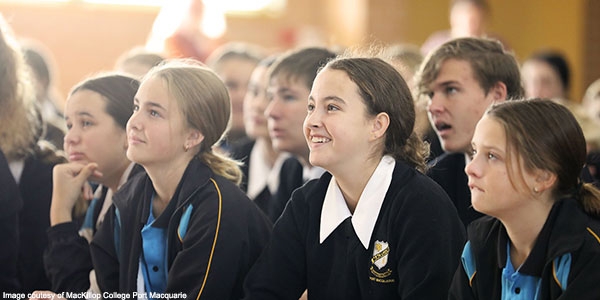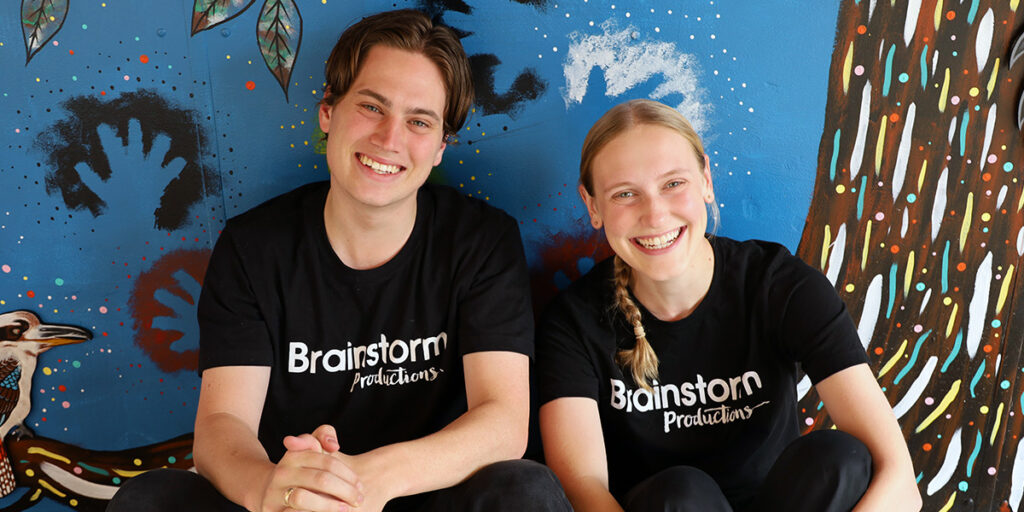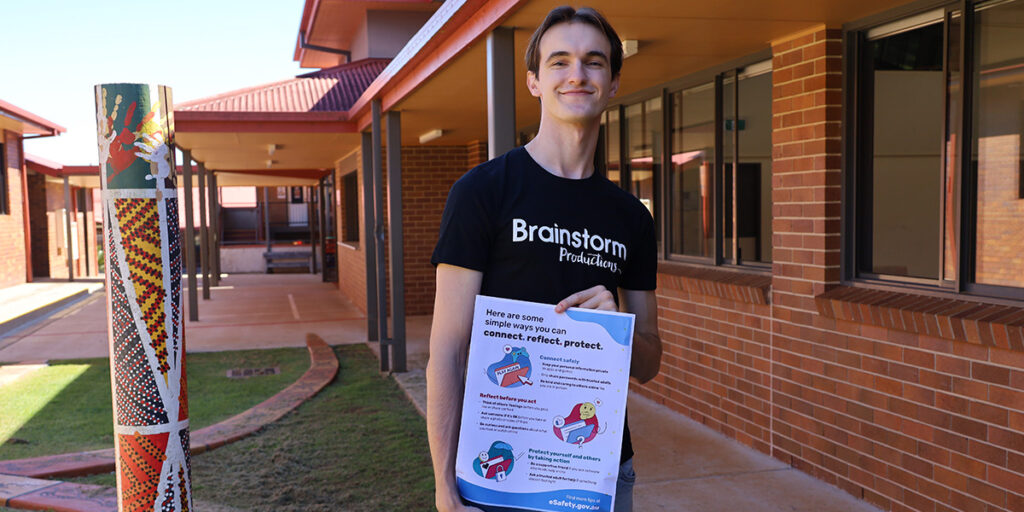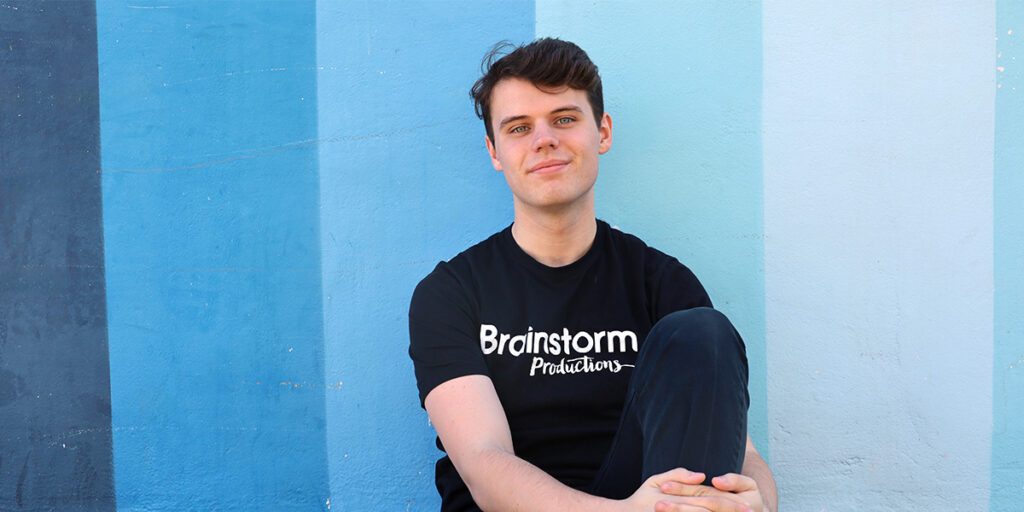As teachers we often get stuck. The busyness of teaching, the marking, administration and preparation can often leave you feeling as if your creativity has run dry and you are at a loss for a new, engaging way to teach a concept. I have found this especially to be the case when I have had to develop lessons about ‘big’ issues such as bullying, choices, healthy relationships and cyber safety. These are conceptual, sometimes abstract, life topics; topics very different to the more concrete maths and sciences. So I’m always looking for innovative and creative ways to teach these topics, and practical resources to support this.
Theatre in education is a useful wellbeing resource
Educational institutions across the world have long recognised that the curriculum needs to cater to the broader needs of students; going beyond the core subjects and also focusing on life skills and student wellbeing. Theatre in education companies like Brainstorm Productions are an excellent resource for teachers to draw upon when developing their lesson plans. Brainstorm performances explore sensitive and often complex topics through high quality theatre that engages students and brings the concepts to life. However, what happens after the show? How can the experience of live theatre be taken from the school gym and into the classroom?
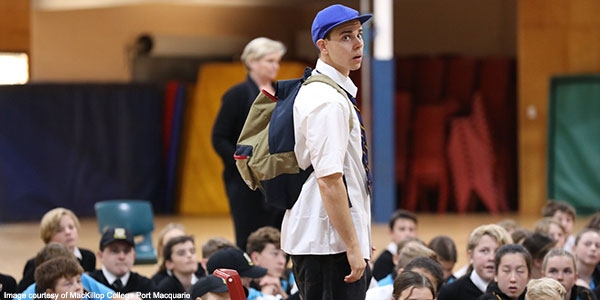
Post-performance classroom activities reinforce social and emotional learning
Brainstorm Productions provide resilience programs for schools consisting of not only a performance, but also a comprehensive set of follow-up teachers’ resources. This ensures the show isn’t something that just ‘happened’ and is subsequently forgotten. These tailor-made resources further delve into the main messages of the show, using a range of engaging teaching methods. They are created by experienced teachers and a clinical psychologist, to ensure the methods and content are appropriate and constructive.
The teachers’ resources help students apply the messages to their own lives. Not only do they open up and initiate a dialogue after the show, but they utilise a range of pedagogical strategies to help students explore situations and solutions. The aim is to provide a toolkit of skills to help them cope with challenges they may face.
How are the Brainstorm Productions teachers’ resources developed?
As a teacher who has created resources for these shows, I have found the experience to be incredibly helpful. The process is extensive and, even as a teacher, has been a learning experience for me.
I often begin with sitting with the director and writer of the show, and if possible, some of the actors. We talk through the main messages and what we think needs to be explored with students after the show. I then work alongside a clinical psychologist who helps me to create classroom activities that will deepen the students’ understanding and help them develop practical skills. The involvement of a psychologist also means the messages and strategies are linked to recent academic literature. This step is particularly important for me, as it ensures the lessons are based on verifiable, peer-reviewed research. As a teacher, I know this is paramount to ensuring the wellbeing of students is protected.
I then use my own experience and skills to provide a framework for the lessons. Here, I draw on my knowledge of what is relevant to students and what works for them. I am also able to put myself in the teacher’s shoes, where one might have that dreaded last lesson on a Friday afternoon with Year 9s and we suddenly have to discuss feelings!
There is an understanding that sometimes school days and lessons don’t always go to ‘plan’, therefore, these resources are created with flexibility and ease in mind: they are easy to access, easy to implement and easy to adapt.
Classroom activities written by teachers, for teachers
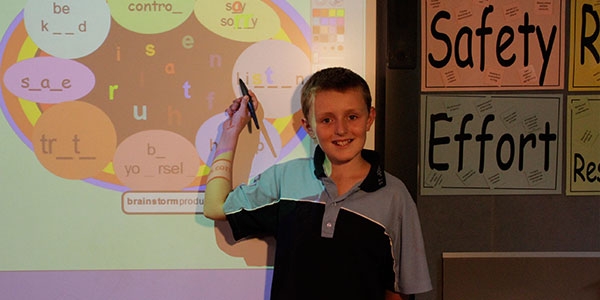
The Brainstorm teachers’ resources are created with a variety of schools and their differing circumstances in mind. The lessons often cover a range of academic subjects, including, but not restricted to English, PDHPE, Drama, The Arts and Personal and Social Capability. This means the resources can be used by staff across departments, and can be linked to the curriculum where needed.
They provide options for schools that have access to ipads, laptops and smart boards, but equally provide activities for schools that don’t have access to these technologies. They are also useful for those days when the network is down and you are forced to resort back to more traditional ‘butcher paper plus markers’ methods!
The resources tap into a diverse range of learning styles through strategies such as role-play, individual writing and group tasks. Each lesson has a clear objective and outcome, and is created with the goal of providing students with practical, real life ways of coping.
Theatre in education adds something different to the normal curriculum, and the teachers’ resources provided with each Brainstorm show extend this even further. Through the thoughtful planning process and the knowledge of a range of experts, you can trust that your lessons have purpose and will ensure students gain something positive from each show that will help them thrive in life.
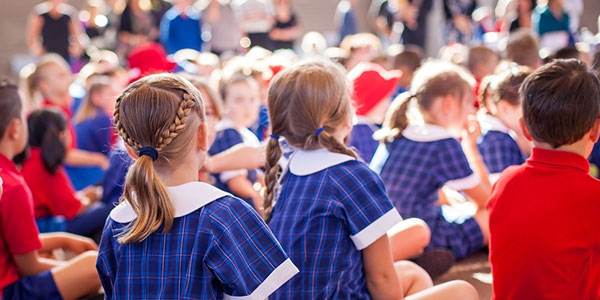
Leigh-Anne Robinson is a Drama and English teacher who has taught at a range of secondary schools in Queensland and Victoria, and is currently teaching at the Berlin Metropolitan School in Germany. She has a Bachelor of Creative Industries (Drama) and a Post Graduate Diploma in Secondary Education (Drama and English) from Queensland University of Technology. Leigh-Anne has contributed to the development of a number of Brainstorm Productions teachers’ resources.

